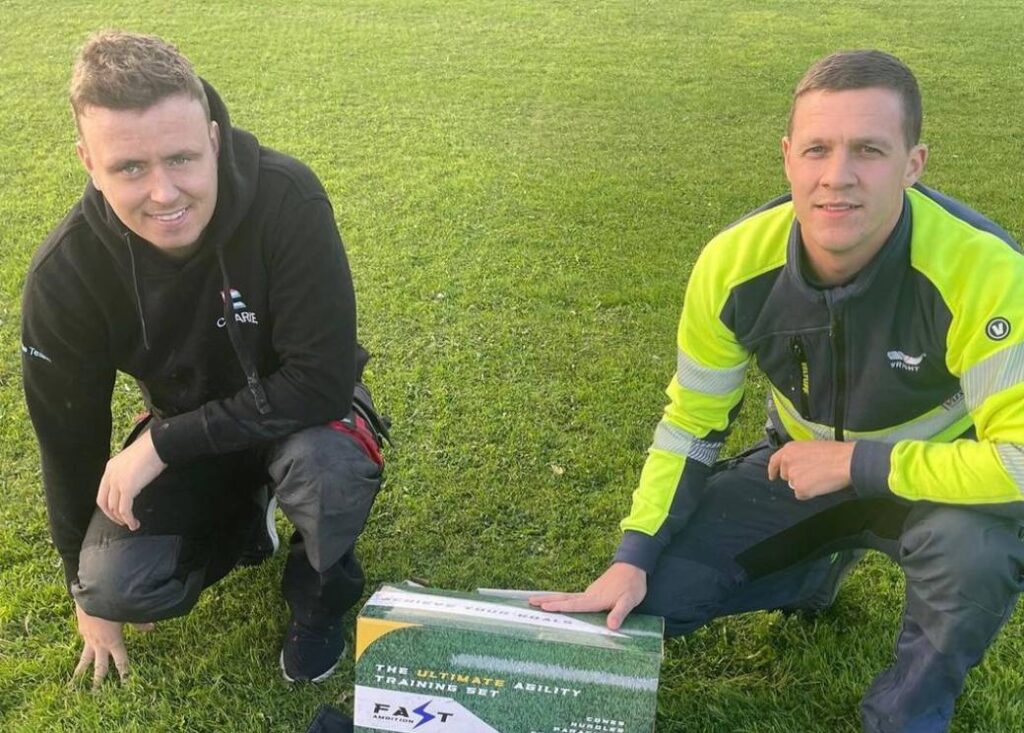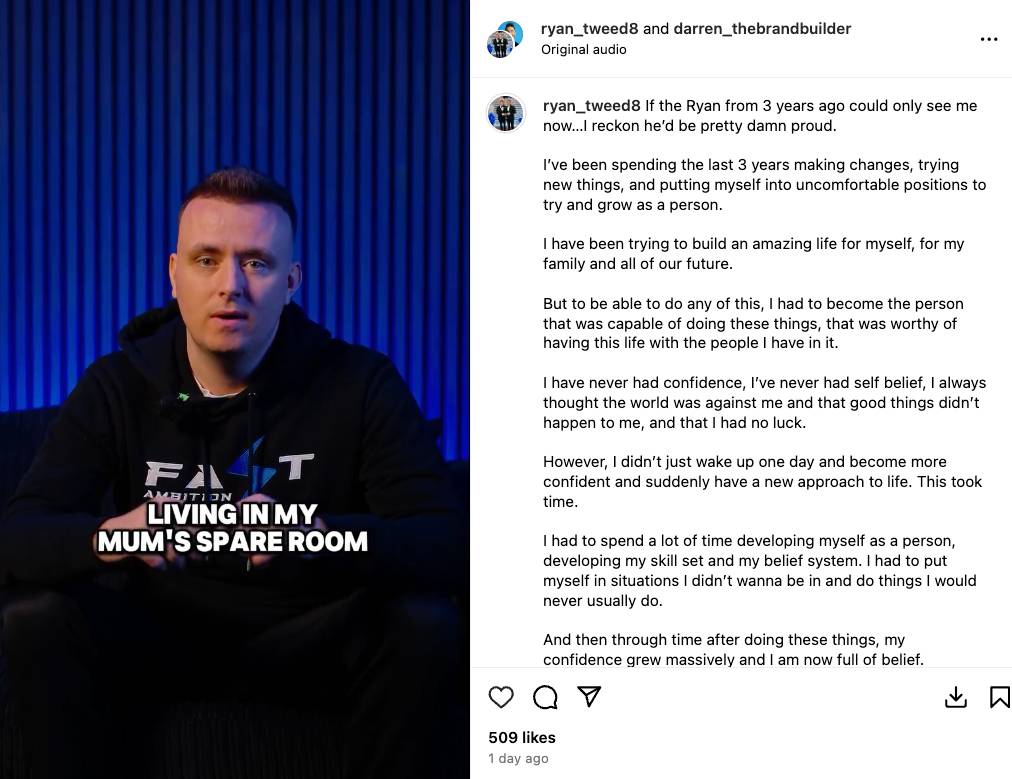Darren Campbell’s FBA Brand Builder program claims to offer a roadmap for launching successful Amazon brands, with a focus on hands-on guidance from experienced mentors. The promise? A step-by-step journey to profitability, guided by people who’ve supposedly mastered the game themselves.
But here’s the catch: feedback from clients and recent digging paint a much messier picture. Turns out, these so-called experts may not have the thriving businesses they preach about. Instead, their companies seem to be struggling, inactive, or even shut down. Yikes.
In this article, we’re taking a closer look at what’s really going on. Are the mentors as qualified as they claim to be? And what about the concerns that frustrated participants are raising? Let’s dive in.
For more on this topic, don’t miss our earlier report: "The 'Experts' Behind Darren Campbell’s FBA Program: Are You Paying for a Financial Disaster?"
The Mentorship Model
How Mentors Fit Into the Program
Mentors are positioned as the backbone of Darren Campbell’s FBA Brand Builder program. From product research and supplier negotiations to launch strategies, they guide clients through every stage:
“Jason, our great brand owner and obviously our brand development manager, is going to help you through the whole process... Jason’s got more experience than anybody when it comes to placing an order, shipping, and dealing with trademarks”.
Clients are encouraged to rely on these mentors for hands-on support, trusting in their supposed expertise. Weekly calls, one-on-one sessions, and “momentum calls” further reinforce the importance of mentors in the program’s structure.
The Contradiction in Priorities
Despite the emphasis on mentorship, many participants question how these mentors find the time to manage their own thriving Amazon businesses while dedicating themselves to full-time coaching. This discrepancy raises doubts about whether teaching, rather than doing, is their primary source of income.
For a deeper look at mentorship inconsistencies, read "Mentorship Promised, Reality Delivered".

Are Mentors Truly Successful?
Questioning Their Business Viability
Clients have repeatedly raised concerns about the financial health of the mentors’ businesses:
- During a weekly call, a participant asked, “Are the mentors actively running brands, or are they just teaching us how to?” Darren deflected, focusing on the program’s value rather than providing specifics.
The recent investigation in "The 'Experts' Behind Darren Campbell’s FBA Program" highlighted troubling findings:
- Jason McKay: His company, Jason McKay Vision Ltd, is dormant with just £1 in assets, yet he mentors clients on achieving financial freedom.
- Nicole Caldwell: Guides early-stage clients while her own company, NCL Brands Ltd, is in negative equity by £4,416.
- The Tweed Brothers: Their company, Tweed Global Trading Ltd, faces an active proposal to strike off.
These examples suggest a glaring disconnect between the mentors’ own financial realities and the program’s promise of guidance from seasoned experts.

Mentorship as the Primary Revenue Stream
A Safer Financial Choice
The program’s structure makes it clear that mentors rely heavily on mentorship fees rather than income from their Amazon businesses. Coaching offers:
- Steady Revenue: Unlike fluctuating Amazon sales, mentorship provides a consistent paycheck.
- Low Risk: Mentors avoid the financial risks of product launches, inventory management, and ad campaigns.
- Increased Credibility: Being labeled as “mentors” enhances their professional profile, even if their actual business success is limited.
As noted in our article, "Accountability: Let’s Talk About That, Daz", this reliance on mentorship income creates a troubling dynamic where the mentors’ qualifications often don’t align with the expertise they are supposed to provide.

The Dubai Connection
A Double Standard in Business Practices
A striking contradiction lies in how the program’s mentors handle their own businesses versus the advice they give participants. Clients are encouraged to establish UK Limited companies through Richard, the program’s recommended accountant, to ensure compliance with UK and EU tax laws:
“Book a call with Richard to get your UK Limited company set up. This is essential for VAT registration and tax compliance if you're selling in the UK or EU”.
However, recent evidence reveals that several mentors are dissolving their UK companies, potentially in preparation for relocating to Dubai, a tax-friendly jurisdiction. This strategy offers significant financial benefits, including zero corporate tax, and hints at a calculated move to avoid UK tax obligations.
Examples of Company Closures
Mentors implicated in these shifts include:
- The Tweed Brothers: Their company, Tweed Global Trading Ltd, is currently facing a proposal to strike off.
- Jordan McClean: MCC Enterprises Ltd is also on the verge of being struck off.
- Darren Campbell: Darren himself has dissolved multiple companies in the past, including Commerce DC Ltd and NSW Sales Ltd.
These closures appear to align with Darren’s rumored move to Dubai, raising questions about the mentors’ financial strategies and whether they’re operating with participants’ best interests in mind.
For more on the financial motivations behind such moves, see "Transparency Gaps in the FBA Brand Builder".

The Implications for Clients
Financial Risks for Participants
Participants are advised to establish UK Limited companies, incurring administrative and tax obligations, while mentors seem to be pivoting away from this structure entirely. This double standard creates a significant ethical issue:
- Setup Costs: Participants bear the financial burden of company registration, VAT filings, and ongoing compliance, which can be significant for new entrepreneurs.
- Outdated Advice: Mentors relocating to Dubai may have access to cost-saving strategies that they do not extend to participants, leaving clients to navigate a more expensive and complicated business environment.
Misaligned Incentives
The mentors’ apparent shift to Dubai suggests a focus on their own financial interests rather than ensuring the success of their clients. As noted in "The 'Experts' Behind Darren Campbell’s FBA Program", this behavior undermines the program’s credibility.

The Illusion of Expertise
Are You Paying for Their Mistakes?
The evidence suggests that some mentors have used mentorship as a lifeline to recover from their own financial difficulties. The financial struggles uncovered in our previous reporting cast doubt on their ability to provide sound guidance:
- Nicole Caldwell: Mentoring clients on building profitable brands while her own company is in negative equity by over £4,000.
- Jason McKay: Presented as a financial freedom expert, yet his dormant company raises questions about his practical experience.
These examples highlight a troubling pattern: mentors appear to be relying on program income to stabilize their own finances rather than providing actionable, experience-based advice to clients.
For a detailed breakdown of these issues, read "The True Cost of the Dream".

Client Reactions and Growing Skepticism
Participant Doubts on Mentor Expertise
Clients are increasingly vocal about their concerns, as evidenced in feedback during weekly calls and on social media:
- “I paid for this program expecting to be mentored by successful Amazon sellers. Instead, I feel like I’m being taught by people who are struggling more than I am”.
- “Why are the mentors telling us to set up UK companies when they’re closing theirs? If Dubai is a better option, why aren’t we being told about it?”.
The discrepancy between the mentors’ advertised success and the reality of their financial situations has eroded trust. For many participants, the program’s promise of expertise has begun to feel like a façade.
Challenges to Team Credibility
Darren and his team have faced direct challenges from clients referencing our earlier investigations, including:
- Financial Failures: Clients have pointed to mentors like Nicole Caldwell and the Tweed Brothers as examples of unqualified guidance.
- Hidden Agendas: Darren’s rumored move to Dubai has raised suspicions that the program may be more focused on personal gains than participant success.
For a detailed client perspective, see "Accountability: Let’s Talk About That, Daz".

The Program’s Long-Term Viability
What Happens When the Façade Cracks?
The credibility of the FBA Brand Builder program hinges on its mentors being credible experts. As more evidence surfaces of their financial struggles and inconsistencies, the program’s reputation risks further erosion. Key concerns include:
- Client Retention: Disillusioned clients are likely to leave the program or discourage others from joining.
- Media Scrutiny: The growing attention from publications like The Belfast Telegraph could bring wider public awareness to the program’s flaws.
The Exit Strategy?
The rumored moves to Dubai could signal that Darren and his team are preparing for a broader exit from the UK market. If true, this would leave participants without the local support they were promised when they joined.
For more on the potential fallout, read "The Risks of Joining FBA Brand Builder".

Wrapping It Up
Darren Campbell’s FBA Brand Builder pitches itself as the ultimate stepping stone to Amazon success, complete with guidance from “expert” mentors. But let’s be real—dig a little deeper, and the picture isn’t so shiny. Many of these mentors don’t seem to be thriving entrepreneurs at all. Instead, it looks like they’re relying on mentorship fees to keep their own financial situations afloat.
What does that mean for participants? They’re stuck navigating a program full of contradictions—being told to set up expensive UK companies while mentors shut theirs down, and following advice from people whose own businesses are either dormant or in serious financial trouble. It raises a big question: is this really about helping clients succeed, or just another profit-driven system?
What You Should Know Before Signing Up
- Do Your Homework: Before committing, dig into the mentors’ backgrounds. Can they prove their success in the business they’re coaching you on?
- Consider the Expenses: Think about whether setting up a UK Limited company is worth the cost—or if there are better, less expensive options.
- Spot the Warning Signs: Mentors with financial troubles, dissolved companies, or a lack of transparency should raise major red flags.
If you’re still thinking about joining, proceed with caution. It’s your investment—make sure it’s worth it.

